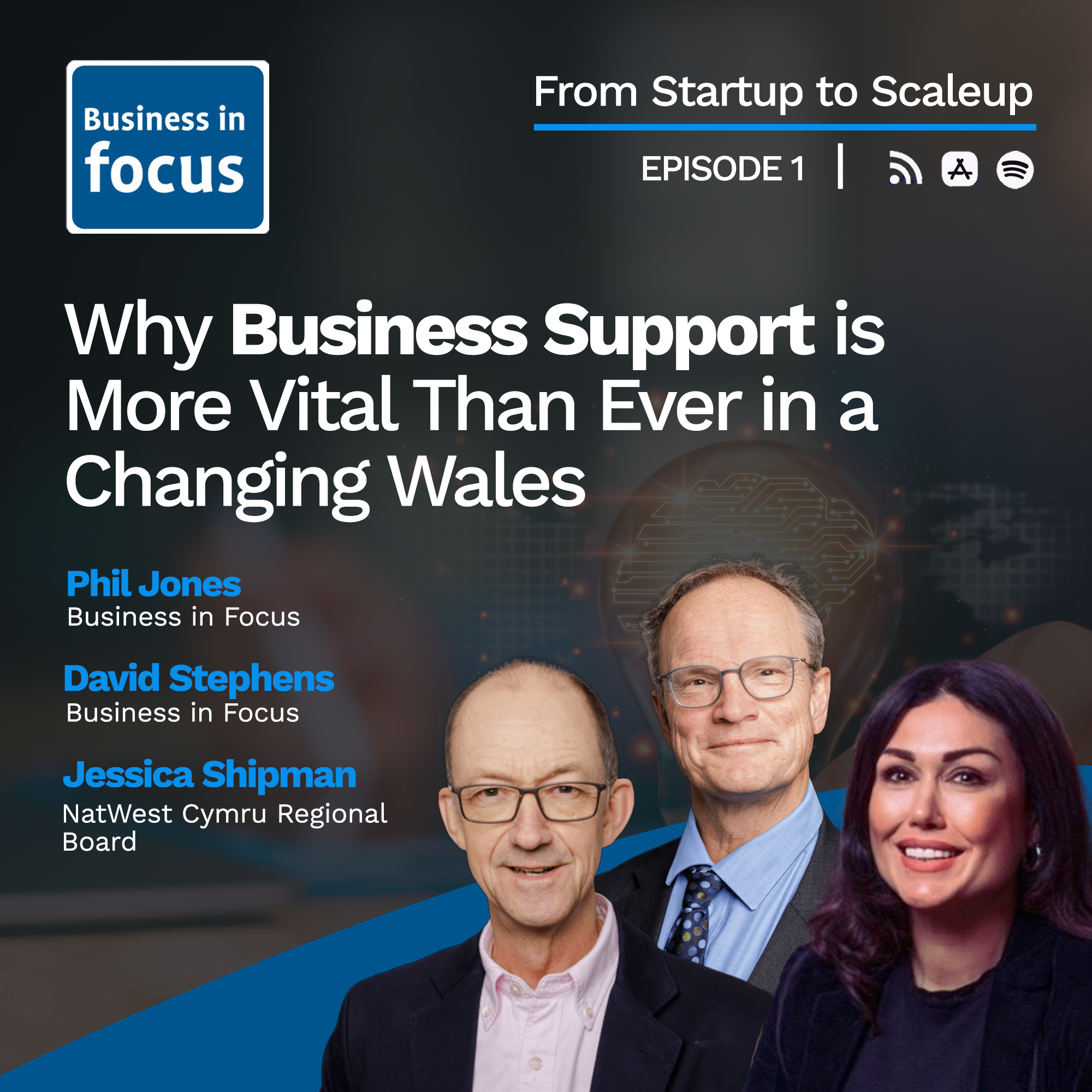
GUEST COLUMN:
Jessica Shipman
Chair
NatWest Cymru Regional Board

If you ask most founders whether they’re open to support, they’ll say yes. But in practice, many either don’t know what support is out there, don’t know how to access it or don’t feel confident doing so. That hesitation is costing us growth.
At NatWest, we work with businesses of all sizes across Wales. From digital platforms for startups to dedicated relationship managers for established firms, we provide tailored support at every stage. Time and again we see the same pattern: those who engage with support networks early on tend to grow faster and more sustainably than those who try to do everything on their own.
Wales has an impressive ecosystem of support available – including Business Wales, enterprise hubs and accelerators including the one NatWest provides – but it’s still underused. Part of the issue is geography. Urban centres across South East Wales are seeing more momentum, but parts of West, Mid and North Wales are still underrepresented in terms of business formation and growth. That’s a real challenge for a nation that needs to build a broader, more balanced economy.
The other part is mindset. I understand the instinct many business owners have to figure things out themselves. But there comes a point when an external perspective can make the difference between treading water and taking off.
Founders often have what we call ‘founder bias’ – a strong belief in their idea, but sometimes a reluctance to challenge it or adjust course. Bringing in the right support at the right time can help shape plans, stress-test strategies and make sure funding is deployed in the smartest way.
That matters particularly when a business starts to look at funding options. From a lender’s point of view, we want to know that a business has a clear plan, a realistic view of its financial needs, and a strategy for return on investment. That’s where early advice, whether from an advisor, a bank or a mentor, can help founders refine their pitch and make better decisions. It’s not just about getting funding. It’s about using it effectively.
I’ve seen too many businesses race ahead to raise money before they’ve properly worked through what they really need – or whether they’re ready for that next stage. A bit more planning, supported by the right expertise, would have put them in a much stronger position.
That’s not just a startup issue. We work with businesses turning over several million pounds that have plateaued because their leaders are reluctant to take on the risk that comes with the next phase of growth. It’s understandable, but it’s also where support can play a vital role in helping businesses see the bigger picture and regain their momentum.
We know the appetite for growth exists. NatWest currently has £3.2 billion in lending capacity available for businesses in Wales. Of that, £2.4 billion is drawn – meaning there’s still significant headroom. What’s notable is that only a small proportion of last year’s lending was for growth investment. Most of it was refinancing or transactional. That’s a concern, and it points to a broader issue around confidence and ambition.
Wales is not short of entrepreneurial talent – but too many business owners are holding back. Rising costs, economic uncertainty; many pressures, perceived or otherwise, have an impact. The solution isn’t just about offering more money. It’s about helping businesses believe in their growth potential again and encouraging them to make the most of the support that’s already available.
We also need to keep pushing for better connectivity across the ecosystem. Wales has a unique advantage in its networks – often, you’re only a message or two away from someone who can help. But we need more active signposting and more collaboration between organisations to make sure founders are finding the right advice at the right time.
Storytelling plays a role here too. Sharing real examples of businesses that have started small, used support wisely and gone on to succeed can go a long way in building confidence and inspiring others to take that first step.
And of course, we mustn’t forget skills. The entrepreneurs of tomorrow are likely to be running digital businesses and we need to ensure we’re developing the technical skills that will underpin that future economy. Connecting business with education is vital if we’re to close that gap.
In the end, support is not a sign of weakness. It’s a sign of strength. A business that knows when to bring in outside counsel is one that is better placed to scale, adapt and lead. Whether it's accessing finance, finding the right people, or navigating new markets, founders don’t have to do it all alone. The support is here – we need to encourage entrepreneurs to take it up.
Jessica Shipman talks about this and more in the Business in Focus podcast episode Why Business Support is More Vital Than Ever in a Changing Wales. Listen to the podcast here.











